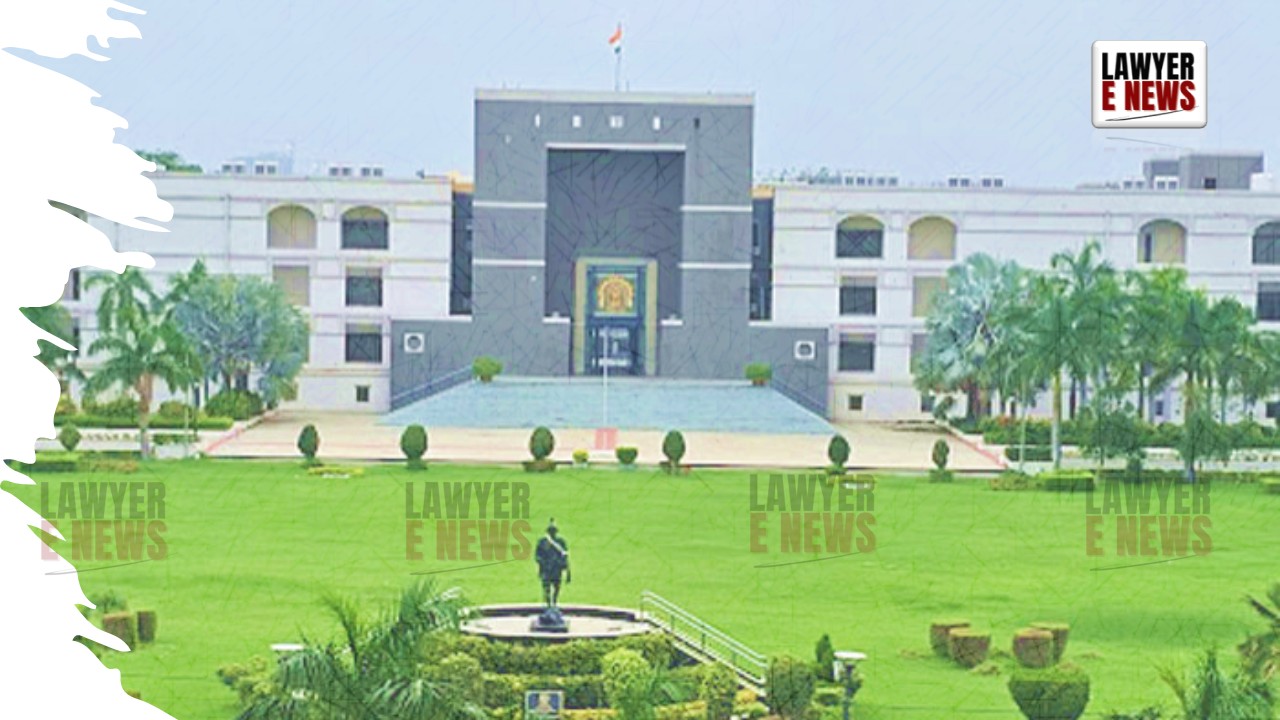-
by Admin
15 February 2026 5:01 PM



In a crucial ruling the Gujarat High Court exercised its inherent powers under Section 482 of the Code of Criminal Procedure, 1973, to quash FIR No. II-3002/2018, filed at Thangadh Police Station, Surendranagar, holding that it was legally impermissible since it arose from the same incident that had already been investigated and adjudicated.
The single-judge bench of Justice Divyesh A. Joshi ruled in favor of the petitioners, Rajubhai Samabhai Kumkhaniya & Anr., who had challenged the second FIR on the ground that it was a duplication of an earlier complaint (C.R. No. I-25/2017) for the same alleged offence. The Court categorically held that "registration of a second FIR for the same incident, when an earlier FIR has already led to trial and acquittal, is not only impermissible but also amounts to an abuse of the process of law."
Justice Joshi, referring to the Supreme Court’s ruling in T.T. Antony v. State of Kerala (2001) 6 SCC 181, reiterated that "the law is well-settled that once an FIR has been registered, investigated, and a report has been filed, a second FIR on identical allegations is unsustainable. Any further material emerging from the same incident should form part of the investigation in the first FIR rather than being the subject of a separate complaint."
A Second FIR Cannot Revive Proceedings After Acquittal
The case stemmed from an alleged altercation that took place on April 29, 2017, where the complainant had initially lodged an FIR (C.R. No. I-25/2017) alleging that the accused had verbally abused him, fired a gunshot at his shop’s shutter, and threatened his life. After a full investigation, the case proceeded to trial (Criminal Case No. 402/2017) before the Judicial Magistrate, First Class, Thangadh, which resulted in acquittal of the accused.
Following this, the complainant, on February 1, 2018, lodged a second FIR (No. II-3002/2018), making the same allegations but additionally invoking Section 427 of the IPC (mischief causing damage) and Section 25(1)(1-B) of the Arms Act (possession of arms without a license).
The accused approached the Gujarat High Court under Section 482 CrPC, arguing that the second FIR was legally untenable, as it sought to re-open a matter that had already been adjudicated.
Justice Joshi held that "once a trial has concluded in acquittal, allowing a subsequent FIR with identical allegations would be nothing but an attempt to harass the accused and an abuse of the process of law. Criminal jurisprudence does not permit a fresh prosecution on the same facts after a judicial determination has been made."
"A Second FIR on the Same Facts Violates the Fundamental Principles of Criminal Law"
The Court, while applying the "test of sameness", ruled that the two FIRs arose from the same incident, involved the same parties, and contained nearly identical allegations. Therefore, the second FIR did not stand independently and was liable to be quashed.
Citing the Supreme Court's judgment in Amitbhai Anilchandra Shah v. CBI (2013) 6 SCC 348, the Court held that "no second FIR can be registered when it relates to the same offence for which an earlier FIR was registered and investigated. If such a practice is permitted, it would result in a gross miscarriage of justice, allowing endless litigation and harassment of accused persons."
Justice Joshi observed that "if a second FIR is permitted on the same facts, it would strike at the very root of fair criminal proceedings. The accused cannot be subjected to multiple prosecutions for the same alleged act under different garbs."
High Court Invokes Its Inherent Powers to Prevent Misuse of Legal Process
The Gujarat High Court, in exercising its powers under Section 482 CrPC, emphasized that "the High Court is duty-bound to intervene in cases where the legal process is being misused to harass individuals. The power under Section 482 exists precisely to prevent such abuse and ensure that criminal law is not wielded as a tool for oppression."
The Court further noted that "when an FIR has led to acquittal, a subsequent FIR with the same allegations serves no legitimate purpose except to vex the accused. Allowing such an FIR to stand would set a dangerous precedent, enabling repeated prosecution for the same cause of action."
Quashing of FIR and Termination of Proceedings
Based on these findings, the Gujarat High Court quashed FIR No. II-3002/2018, stating that it was:
• A second FIR arising from the same incident, which is legally impermissible.
• An attempt to revive criminal proceedings after acquittal, which is barred by law.
• An abuse of the legal process, warranting judicial intervention.
Justice Joshi concluded by stating that "permitting the second FIR to continue would not only violate settled legal principles but would also lead to harassment and injustice. The FIR and all consequential proceedings are, therefore, quashed."
With this ruling, the Gujarat High Court reaffirmed the fundamental principle that once an FIR has been investigated and adjudicated, no fresh complaint on the same facts can be entertained. The judgment serves as a strong precedent against vexatious litigation and ensures that criminal law is not misused to target individuals repeatedly for the same alleged offence.
Date of Decision: 27 January 2025
